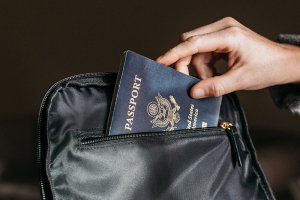About Our Immigration Legal Services
Ahluwalia Law Offices, P.C provides a large-scale of Family and Employment based Immigration services. We represent a wide range of individual backgrounds and many corporations seeking highly educated candidates through the employment-based visa process.
Getting Your Immigration Case Evaluated
Family based Immigration
U.S citizens can sponsor spouse, children, parents, brother, sister, married and unmarried sons and daughters, and adopted children. Permanent Residents of the U.S may sponsor spouse, children and unmarried adult sons and daughters. We off the removal of conditions for those that have applied for marriage based green cards. A special family situation may also qualify you for permanent residence. These include sponsorship under VAWA, K-1 visa, U visa, humanitarian parole and V visa. We also represent clients in the filing the following but not limited to:
Green cards: This is also known as a permanent resident card. Previously, was also known as lawful permanent resident. Which identifies individuals as a lawful resident in the United States. Many family members which have been listed above in short qualify under the categories of F2A, F2B and those with children aging out of the green card process under their parents. All these categories can be found with explanations on the U.S. Department of State visa bulletin.
DACA: Deferred action for childhood arrivals is an immigration policy that was passed into law during the Obama administration. Which allows some children that were brought to the U.S. by their parents unlawfully. This allows for deferment from deportation and when of age to work allows for work authorization as well.
Naturalization: This is the legal process of non-citizens becoming citizens of the U.S. Citizens of other countries may be allowed to have dual citizenship they may also apply for naturalization in the U.S.
If you or a family member needs assistance with any of the above-mentioned immigration matters, please call our office at 972-361-H1B1 (4121) or email [email protected]
Employment Based Immigration
This is widely used for both temporary and permanent based employment immigration to U.S. We provide guidance on complex immigration issues resulting from mergers, acquisitions, and other corporate changes. We also assist corporate clients in obtaining immigration as executive, manager and professional employees in most visa categories such as EB1a, EB1c and EB1b. In addition, offer O1 visas for individuals with extraordinary ability or achievements and P-1 vias for athletes. Below we have shared some of the more commonly known employment-based visas as briefly touched below:
H-1B visa: The H-1B nonimmigrant classification is a vehicle through which a qualified individual may seek admission to the U.S on a temporary basis to work in his /her field of expertise.
L visa: This visa facilitates the temporary transfer of foreign worker in the managerial, executive or specialized knowledge of category to the U.S to continue employment with an office of the same employer, its parent, branch, subsidiary or affiliate.
R visa: These are short term work visas available to people who have been offered jobs as religious workers in the U.S.
TN visa: This visa category, under NAFTA (North American Free Trade Agreement) is available for professionals who are citizens of Canada and Mexico.
PERM Labor Certification: The Program Electronic Review Management (PERM) Labor certification issued by Department of Labor allows an employer to hire a foreign worker to work permanently in the U.S.
I-140 Immigrant Petition for Alien Worker: The U.S. offers a variety of ways to become a lawful permanent resident (get a green card); one way is through the employment. There are three separate categories which you can file the I-140 in from EB-1, EB-2 and EB-3. Then the I-485 is known as the last step in the employment based green card filing also known as filing the adjustment for status. This step is filed for once your priority date and category on the approved I-140 is current with the U.S. Department of States visa bulletin.
E2 visa: These visas in short are investor visas. Also know as Treaty Investors which allows a person(s) to be admitted into the U.S. by investing a sizeable amount financially in a U. S. based business(s). In addition, there are certain criteria that need to be met aside from the financial commitment(s) on order to be qualified.
If you or a family member needs assistance with any of the above-mentioned immigration matters, please call our office at 972-361-H1B1 (4121) or email [email protected]

Immigrants to the United States are divided into two categories:
1. Individuals who may acquire permanent residency without numerical limitation.
2. Individuals subject to a yearly limitation.
There are three divisions of this category: family-based; employment-based; and diversity immigrants.

1. race
2. nationality
3. religion
4. membership of a particular social group or because he or she is identified with a particular social group
5. political opinion that will subject him to persecution.
Also, the law requires that an applicant must apply within 1 year of arriving in the U.S. otherwise; applicant must show either extraordinary circumstances or changed circumstances in his or her home country.
Steps
You should apply for lawful permanent residency on Asylee Form I-485, application to Register Permanent Residence of Adjust Status. You must have been in the US under asylee status for at least one year.
Documents
In addition to Form I-485, the following documents and forms are also required:
1. Fingerprint fee (if you are between the ages of 14 and 79)
2. Form I-485 filing fee
3. Form G-28 (if applicable), signed by both you and your attorney/representative
4. 2 photos in an envelope stapled to lower left corner of Form I-485. Please write your name and A-number (if you know it) in light pencil on the back of each photo.
5. Signed Form G-325, if you are age 14 or older.
6. Form I-693 Medical with Vaccination Supplement. An USCIS authorized civil surgeon must conduct this medical examination and complete the form.
7. Evidence of Asylee Status. This may include a copy of your Form I-94 and a legible copy of the letter granting you asylum.
8. Form IRS-9003, optional.
9. Form I-602, Application by Refugee for Waiver on Grounds of Excludability, if applicable.
10. Evidence that you have been in the US for at least one year.
11. Proof of any absences from the US since you have been granted asylum.
12. A birth certificate or other birth record.
13. Proof of any legal name changes made since you were granted asylum status.

EB-1 Priority workers
1. Individuals with extraordinary ability in the sciences, arts, education, business or athletics.
2. Outstanding professors or researchers
3. Managers and executives transferred to the US
EB-2 Professionals with advanced degrees or persons with exceptional ability
1. Individuals with exceptional ability in the sciences, arts or business
2. Professionals with advanced degrees
3. Physicians intending to practice medicine in underserved areas
EB-3 Skilled or professional workers
1. Professionals with bachelor’s or equivalent degrees
2. Skilled workers with at least two years experience
3. Unskilled workers
EB-4 Special Immigrants
1. Religious workers
2. Employees and former employees of the US Government abroad
EB-5 Immigrant Investors
1. Engaging/starting in a new commercial enterprise in the U.S.
2. Showing that the new enterprise will either directly or indirectly create 10 or more jobs
![]() The EB-1 classification is open for 3 types of foreign nationals that:
The EB-1 classification is open for 3 types of foreign nationals that:
1. Possess Extraordinary Ability in the Sciences, Arts, Education, Business or Athletics, or
2. Are Outstanding Professors or Researchers, or
3. Managers and Executives of multinational business entities who are on international transfer to the U.S.
Persons in this category are allowed to file for permanent residency (green cards) and do not need to file labor certification application. Thus, beneficiaries in this group enjoy the highest priority among all employment-based green cards.
Steps
Individuals with extraordinary ability may self-petition. All other EB-1 petitions should be filed by your employer.
Either you or your employer should file-in Form I-140, the Petition for Alien Worker with the USCIS Regional Service Center that has jurisdiction over the location of your employment. This form should contain all necessary documents and evidence. Labor certification is not required for EB-1 petitions.
Documents
Aliens with extraordinary ability are defined by USCIS as individuals with “extraordinary ability in the sciences, arts, education, business, or athletics which has been demonstrated by sustained national or international acclaim and whose achievements have been recognized in the field through extensive documentation.” The Nobel Prize or similar awards duly prove this status. However, there are alternative means of proving your extraordinary ability. You may submit at least three of the following types of evidence:
1. Receipt of lesser recognized prizes or awards for excellence.
2. Membership in associations in your area which demand outstanding achievement of their members.
3. Published material about you in major publications.
4. Proof that you have judged others’ works.
5. Proof that you have made original contributions to your field.
6. Proof that you have published articles about your field in major publications.
7. Proof that your work has been displayed in exhibitions or showcases.
8. High status in a distinguished organization.
9. Proof that you receive high payments for your work, in relation to your peers.
10. Proof of commercial success in the performing arts.
As an outstanding professor or researcher, you should be internationally recognized in your field. You should be coming to the US to accept a tenure track position, and you should have had at least three years experience in your academic field.
Evidence of your status should include at least two of the following:
1. Receipt of major prizes or awards for outstanding achievement.
2. Membership in associations in your area which demand outstanding achievement of their members.
3. Published material about you in major publications.
4. Proof that you have judged others’ works.
5. Proof that you have made original contributions to your field.
6. Proof that you have published articles about your field in major publications.
To be eligible for EB-1 classification as a manager or executive transferred to the US, you must have been employed outside the US as a manager or executive for at least one out of the past three years. The company you work for must have been seeking to enter the US to conduct business during that period of time.
![]() The EB-4 classification includes 2 groups of foreign nationals:
The EB-4 classification includes 2 groups of foreign nationals:
1. Religious workers – primarily ministers of religion.
2. Employees and former employees of the U.S. Government abroad who are foreign nationals.
This category must file Form I-360, Petition for Amerasian, Widow(er), or Special Immigrant, concurrently with a host of other forms depending on their needs with the USCIS serving the area where the immigrant will work.
Steps (Immigrant Religious Worker)
Your employer should file-in USCIS Form I-360 with the USCIS Regional Service Center that has jurisdiction over the location of your employment. You should have been working with your religious organization for at least two years. You should be entering the US to work in one of the following capacities:
1. As a minister or priest of your religious denomination
2. In a professional capacity in a religious vocation or occupation for your religious organization (this requires a bachelor’s degree or its equivalent).
3. In a religious vocation or occupation for your religious organization or its nonprofit affiliate.
Documents (Immigrant Religious Worker)
Along with submitting Form I-360, you should provide the following documents:
1. Proof that your religious organization is a non-profit organization.
2. A letter from an official of your religious organization in the US stating that you have been a member of the denomination for at least two years, and that you have at least two years experience in your vocation or occupation. The letter should also state certain details about your particular type of vocation/occupation.
3. This letter should also state how you will be paid for your work, and that you do not intend to supplement your income with a second job, or depend on charity for support.

- A bachelor’s degree or higher degree or its equivalent is normally the minimum requirement for the particular position;
- The degree requirement is common for this position in the industry, or the job is so complex or unique that it can only be performed by someone with at least a bachelor’s degree in a field related to the position;
- The employer normally requires a degree or its equivalent for the position; or
- The nature of the specific duties is so specialized and complex that the knowledge required to perform the duties is usually associated with the attainment of a bachelor’s or higher degree.
USCIS often refers to the Occupational Outlook Handbook (OOH) from the Department of Labor (DOL) to help determine whether certain jobs require a degree. If the OOH does not indicate that a degree in a related field is normally the minimum requirement for the position, examples of evidence you may submit to demonstrate that the position normally requires such a degree includes:
- Copies of past position announcements, if relevant, that reflect the minimum requirements for the position and which show that your company normally requires a degree for the position. Your position is so specialized or complex it can only be performed by someone with a degree, including a detailed description of the petitioner’s business/products/services and the duties of the position.
- A detailed description of the petitioner’s business/products/services and the duties of the position, along with written opinions from experts confirming that your position is so specialized or complex it can only be performed by someone with a degree (in a related field).
- Job listings, letters and/or affidavits from other employers reflecting the minimum requirements for the position and which shows that the degree requirement is common to the industry in parallel positions among similar organizations.
- Written opinions from experts in the field explaining how the degree is related to the role you will perform
Some of the evidence you may submit to demonstrate that your degree is related to your position includes:
1. A detailed explanation of the specific duties of the position, the product or service your company provides, or the complex nature of the role you will perform, and how your degree relates to the role.
2. Written opinions from experts in the field explaining how the degree is related to the role you will perform.
3. Printouts from online resources describing the degree fields normally associated with the occupation.
4. Evidence that similar companies in your industry require similar degrees for similar positions.
To demonstrate you will be paid the appropriate wage, you must submit a Labor Condition Application (LCA) for your position, certified by the Secretary of Labor, which states, in part:The employer is offering and will offer during the period of authorized employment to aliens admitted or provided status as an H-1B non-immigrant wages that are at least the actual wage level paid by the employer to all other individuals with similar experience and qualifications for the specific employment in question, or the prevailing wage level for the occupational classification in the area of employment, whichever is greater, based on the best information available as of the time of filing the application.
If you are currently working for the company (e.g. working for the company you started while on OPT), some of the evidence you may submit to demonstrate that you will be paid the appropriate wage includes:
1. Your most recent paystubs
2. Your most recent W-2 showing the wages you received
If you are not currently working for the company, you may submit a letter from the company attesting to the wage that you will be paid once employed as an H-1B.
The prevailing wage is determined based on the position in which you will be employed and the geographic location where you will be working (among other factors). The U.S. Department of Labor (DOL) maintains a database with applicable current prevailing wage levels based on occupation and work location.
| The H-1B visa has an annual numerical limit, or cap, of 65,000 visas each fiscal year. The first 20,000 petitions filed on behalf of beneficiaries with a U.S. master’s degree or higher are exempt from the cap. Additionally, H-1B workers who are petitioned for or employed at an institution of higher education (or its affiliated or related nonprofit entities), a nonprofit research organization, or a government research organization are not subject to this numerical cap. Cap numbers are often used up very quickly, so it is important to plan in advance if you will be filing for an H-1B visa that is subject to the annual H-1B numerical cap. The U.S. government’s fiscal year starts on Oct. 1. H-1B petitions can be filed up to 6 months before the start date, which is generally April 1 for an October 1 start date. |
Along with documentation that verifies the conditions, the employer must apply with an approved Labor Certification, I-129 form, an employment support letter, employee biographic documents, and more. USCIS charges filing fees for each petition, which have increased on December 23, 2016. There is an option to make your H-1B applications go faster, which is filing it under “premium-processing”, but this does require an additional filing fee. Please see the filing fees required to file an H-1B on the table below.
| Filing Fee | Amount | |
| Form I-129 | $460 | |
| USCIS Anti Fraud Fee | $500 | |
| ACWIA Education and Training Fee | $750 (For employers less than 25 employees) | $1500 (For employees more than 25 employees) |
| Premium Processing (optional) | $2500 | |
Once your H-1B visa is filed, USCIS might issue a Request for Evidence (RFE) to gather more documentation/information about your case to make sure you are meeting the H-1B conditions. Last year, we noticed a couple of trends that preceded the USCIS’s requests for evidence.
Please follow the link below in regards to these trends.https://www.ahluwalialaw.com/rfe-trends-blog/

In order to apply for an R-1 as a religious worker, you must follow certain criteria provided by United States Citizenship and Immigration Services (USCIS). To be specific, where you are employed/petitioner must allow follow strict measures: You must be employed by a non-profit organization in the United States, which is affiliated with a religious denomination in the United States, or the religious organization must be authorized by a group tax exemption holder to use its group tax exemption. As an applicant/beneficiary(as an occupation or at least part time), you must have an average of at least 20 hour per week, have been a member of a religious denomination for at least two years directly before filing the petition, and under USCIS definitions, be a “religious worker”.
Expanding on USCIS definitions, a religious occupation is one whose duties primarily relate to a traditional religious function, be recognized as a religious occupation within the denomination, and be primarily related to, and clearly involve, inculcating or carrying out the religious creed and beliefs of the denomination. A common illusion is that you can apply to an R-1 visa, based on administrative or support positions such as janitors, maintenance workers, clerical employees, or fund-raisers or similar positions solely involved in soliciting donations, this is not true. Limited administrative duties that are only incidental to religious functions are permissible. Ministers are defined as individuals who are suitably authorized by the religious denomination, and are fully trained according to the denomination’s standards to conduct religious worship and other duties usually performed by the clergy.
A prospective or existing U.S. employer must file Form I-129, Petition for Nonimmigrant Worker, on behalf of foreign nationals seeking to enter the United States as a nonimmigrant minister, or a religious worker in a religious vocation or occupation. An R-1 visa cannot be issued at a U.S. Embassy or Consulate abroad without prior USCIS approval of Form I-129. This process allows USCIS to review the petition to determine whether the petitioning organization and the beneficiary have met their respective eligibility requirements for this nonimmigrant classification. Upon approval of the petition, the consular post then determines whether the foreign national is eligible to receive the R-1 nonimmigrant visa. As with all individuals who appear at ports of entry, U.S. Customs and Border Protection (CBP) determines whether the beneficiary may be admitted to the United States. Visa exempt workers must present the original Form I-797, Notice of Action, at a port of entry as evidence of an approved Form I-129 R petition.
Along with Form I-129, the petitioner must include evidence of eligibility for the classification sought. Both the petitioning organization and the religious worker must satisfy certain requirements, which are discussed below. (Please remember to provide a duplicate copy of the Form I-129 and all supporting documents. Failure to submit a duplicate copy to USCIS may result in a delay in the issuance of a nonimmigrant visa abroad from the U.S. Department of State.)
| Filing Fee | Amount |
| Form I-129 | $460 |
| Premium Processing (optional if you had a site visit at the Petitioner’s location within the past year) | $2500 |
Speak with an Immigration Attorney Today
Want to make an appointment?
Fill out and send in the form below!
Dallas Office
14180 Dallas Parkway, Suite 720
Dallas, TX 75254
Phone: (972) 361-0606
Fax: (972) 361-0999
Email: [email protected]
See Our Reviews
Head Office
Dallas Office
14180 Dallas Parkway, Suite 720
Dallas, TX 75254
Phone: (972) 361-0606
Fax: (972) 361-0999
Email: [email protected]


 The EB-1 classification is open for 3 types of foreign nationals that:
The EB-1 classification is open for 3 types of foreign nationals that: The EB-4 classification includes 2 groups of foreign nationals:
The EB-4 classification includes 2 groups of foreign nationals: